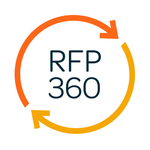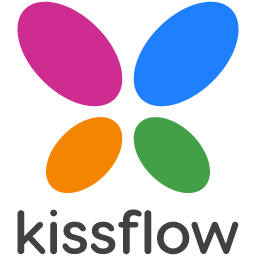Description

Precoro

SAP Ariba
Comprehensive Overview: Precoro vs SAP Ariba
Precoro and SAP Ariba: Comprehensive Overview
a) Primary Functions and Target Markets
Precoro:
Primary Functions:
- Precoro is a procurement management solution designed for small to medium-sized businesses (SMBs).
- It offers features such as purchase order management, supplier management, budgeting, and spend analytics.
- The platform emphasizes ease of use and aims to streamline procurement processes, reduce manual tasks, and improve overall efficiency.
Target Markets:
- SMBs across various industries such as retail, hospitality, education, and non-profit sectors looking for an intuitive and cost-effective procurement solution.
- Organizations seeking quick implementation and minimal IT involvement.
SAP Ariba:
Primary Functions:
- SAP Ariba provides a comprehensive spend management and digital procurement solutions.
- It offers procurement, sourcing, contract management, supplier management, and supply chain management.
- The platform integrates closely with SAP's ERP solutions and emphasizes robust analytics and integrations with other enterprise systems.
Target Markets:
- Large enterprises and multinational corporations across industries such as manufacturing, healthcare, and finance.
- Organizations with complex procurement needs and established IT infrastructure looking for comprehensive and integrated solutions.
b) Market Share and User Base
Market Share and User Base:
-
SAP Ariba is one of the market leaders in the enterprise procurement and supply chain management space. It has a substantial global user base, established partnerships, and is chosen by many Fortune 500 companies. Its market share reflects its comprehensive features, integration capabilities, and suitability for large-scale operations.
-
Precoro, being a newer entrant and focused more on the SMB market, has a smaller market share by comparison. It serves hundreds of companies but does not compete with the same breadth or scale as SAP Ariba. Its user base is growing, particularly among those looking for cost-effective and simple procurement solutions.
c) Key Differentiating Factors
Key Differentiating Factors:
-
Complexity and Scale:
- SAP Ariba: Ideal for large businesses that need a highly configurable, comprehensive solution with robust integration capabilities. It caters to complex procurement needs and requires more investment in terms of implementation and maintenance.
- Precoro: Suited for smaller organizations or those with simpler procurement needs. It offers an easy-to-use interface and quick setup, targeting organizations that prioritize usability and cost-effectiveness.
-
Functionality:
- SAP Ariba: Offers a wide range of procurement functions, including advanced analytics, supplier networks, and global reach. It provides extensive capabilities for managing large-scale supply chains.
- Precoro: Focuses on core procurement functionalities such as purchase and supplier management, budget tracking, and spend visibility—streamlined for simplicity and quick adaptability.
-
Integration and Ecosystem:
- SAP Ariba: Provides seamless integration with SAP ERP and other enterprise systems, offering a high degree of connectivity within the SAP ecosystem. This makes it attractive to existing SAP customers.
- Precoro: Integrates with common business tools like accounting software and offers open APIs, but does not have the same deep integrations with large ERP systems that SAP does.
-
Cost and Pricing Model:
- SAP Ariba: Usually involves a higher cost due to its extensive capabilities and enterprise-grade solutions. Pricing often includes licensing and potentially lengthy implementation services.
- Precoro: Offers a more affordable and transparent pricing structure with straightforward subscription models, making it accessible for smaller organizations.
In summary, while both Precoro and SAP Ariba aim to streamline procurement, they differ significantly in their target markets, scalability, and the breadth of functionality offered, with SAP Ariba catering to large enterprises and Precoro to smaller businesses.
Contact Info

Year founded :
2014
+1 347-389-1524
Not Available
United States
http://www.linkedin.com/company/precoro

Year founded :
1996
+49 6227 747474
Not Available
Germany
http://www.linkedin.com/company/ariba
Feature Similarity Breakdown: Precoro, SAP Ariba
Sure! Let's break down the similarities and differences between Precoro and SAP Ariba in terms of their features, user interfaces, and unique offerings.
a) Core Features in Common:
Both Precoro and SAP Ariba are procurement software solutions designed to help organizations manage spend, procurement processes, and supplier relationships. Here are some core features they typically have in common:
-
Procurement Management: Both platforms offer comprehensive procurement management tools to streamline purchasing processes from requisition to order.
-
Purchase Order Management: They enable users to create, send, and manage purchase orders efficiently.
-
Supplier Management: Both systems provide a way to manage supplier information, track performance, and nurture supplier relationships.
-
Spend Analysis: They offer reporting and analytics features to allow organizations to gain insights into spending habits and areas for potential savings.
-
Approval Workflows: Customizable workflows for purchase order approvals to ensure compliance and minimize maverick spending.
-
Invoice Management: Both support invoice processing, matching, and approvals to ensure smooth accounts payable operations.
-
Integration Capabilities: They offer integration with ERP systems and other financial tools to ensure a seamless flow of data across systems.
b) User Interface Comparisons:
-
Precoro:
- Designed with small to medium-sized businesses in mind, Precoro’s interface is generally considered intuitive and user-friendly, focusing on ease of use for non-specialist users.
- It offers a clean and straightforward dashboard that emphasizes easy navigation and minimalistic design.
-
SAP Ariba:
- SAP Ariba is typically used by larger enterprises and has a more complex interface, reflecting its robustness and comprehensive functionality.
- Its UI can be more overwhelming for new users due to its extensive features and configurations, although it provides excellent depth and customizability for experienced users.
c) Unique Features:
-
Precoro:
- Ease of Use and Quick Implementation: Precoro is known for its simple setup and quick implementation process, making it ideal for smaller firms or those new to procurement automation.
- Budget Management: Features robust budget management tools that enable detailed tracking and control over budget allocations and expenditures.
- Affordability: Generally more cost-effective compared to larger enterprise solutions, catering to the budget constraints of smaller companies.
-
SAP Ariba:
- Ariba Network: One of the largest B2B marketplaces that enhance supplier and buyer connectivity, allowing businesses to engage in more seamless B2B transactions.
- Comprehensive Sourcing and Contract Management: Offers extensive features for strategic sourcing and comprehensive contract management, making it suitable for industries with complex procurement needs.
- Supplier Risk Management: Advanced tools for assessing and mitigating risks associated with suppliers.
Conclusion:
While both Precoro and SAP Ariba offer robust procurement solutions with similar core functionalities, Precoro is more tailored toward small and medium-sized businesses with its ease of use and cost-effectiveness. In contrast, SAP Ariba caters to larger enterprises needing a comprehensive, feature-rich solution with a strong focus on supplier networks and risk management. The choice between the two often depends on the scale of operations, budget, and specific procurement needs of an organization.
Features

Not Available

Not Available
Best Fit Use Cases: Precoro, SAP Ariba
Precoro and SAP Ariba are both prominent procurement solutions, but they cater to different needs and are suitable for different types of businesses and projects.
Precoro
a) Best Fit Use Cases for Precoro:
-
Small to Medium Enterprises (SMEs):
- Precoro is particularly suitable for small to medium-sized businesses seeking a straightforward and cost-effective procurement solution. Its user-friendly interface, ease of setup, and affordability make it an attractive option for companies without complex procurement needs or limited IT resources.
-
Growing Organizations:
- Businesses that are experiencing growth and need to shift from manual procurement processes to a more organized system can benefit from Precoro. It helps standardize and automate purchasing, offering better spend visibility and control without requiring significant investment.
-
Project-Based Companies:
- Companies managing multiple projects with distinct procurement requirements can leverage Precoro for project-specific purchasing. Its capabilities in real-time budgeting and project-based tracking appeal to teams that need to monitor project expenses closely.
-
Cost-Conscious Businesses:
- Businesses that are highly cost-sensitive and seek a solution that balances functionality with low costs may find Precoro to be an ideal choice. It offers essential procurement features without the often high expenses associated with larger, more complex systems.
d) Industry Verticals and Company Sizes:
- Industry Verticals: Precoro serves a wide array of industries, including technology, retail, nonprofit, and construction, among others, focusing on simplifying processes for businesses with straightforward operational models.
- Company Sizes: Primarily targets small to medium-sized enterprises, especially those undergoing digital transformation in procurement or moving away from paper-based systems.
SAP Ariba
b) Preferred Scenarios for SAP Ariba:
-
Large Enterprises:
- SAP Ariba is favored by large multinational corporations due to its comprehensive suite of procurement solutions that cover everything from supplier management to spend analysis and contract management.
-
Complex Procurement Needs:
- Businesses with intricate supply chains and procurement processes benefit from Ariba’s advanced features. It is designed to handle complex workflows, global procurement challenges, and multi-tiered supplier networks.
-
Companies Seeking End-to-End Solutions:
- Organizations looking for a complete source-to-pay or procure-to-pay solution often choose Ariba. It provides seamless integration with other SAP products, enhancing its value for companies already using SAP ecosystems for broader enterprise resource planning.
-
Highly Regulated Industries:
- Industries like pharmaceuticals, finance, and aerospace, which impose strict regulatory requirements on procurement processes, can capitalize on Ariba’s robust compliance and risk management features.
d) Industry Verticals and Company Sizes:
- Industry Verticals: SAP Ariba serves various industries, including manufacturing, energy, chemicals, and public sector, with specialized solutions for industries that require high compliance standards and complex supply chain management.
- Company Sizes: Primarily focuses on large enterprises and multinationals, although it also accommodates midsize businesses that require advanced procurement functionalities.
Conclusion
Precoro and SAP Ariba cater to different segments of the market. Precoro is ideal for SMEs or organizations with straightforward procurement processes. In contrast, SAP Ariba is suited for larger enterprises with complex needs, providing comprehensive, integrated solutions tailored to specific industries and regulatory environments.
Pricing

Pricing Not Available

Pricing Not Available
Metrics History
Metrics History
Comparing teamSize across companies
Conclusion & Final Verdict: Precoro vs SAP Ariba
Sure! Here's a conclusion with a final verdict for Precoro and SAP Ariba, addressing the specified points.
Conclusion and Final Verdict
a) Best Overall Value
When considering overall value, it depends heavily on the specific needs and scale of your business. Precoro offers a more budget-friendly solution with simplicity and user-friendliness, making it better suited for small to medium-sized businesses that need straightforward procurement functionality without incurring high costs. On the other hand, SAP Ariba provides a comprehensive and robust procurement platform that is designed to meet the complex needs of larger enterprises, especially those that need deep integration and advanced analytics.
b) Pros and Cons
Precoro
-
Pros:
- Cost-Effective: Precoro is more affordable, making it an attractive choice for businesses with budget constraints.
- Ease of Use: It offers a user-friendly interface with straightforward functionalities, leading to quick user adoption.
- Quick Implementation: Faster implementation process compared to larger, more complex systems.
-
Cons:
- Limited Advanced Features: While it covers essential procurement processes well, it might lack some of the high-end features found in premium products.
- Scalability Concerns: May not be ideal for large enterprises with very complex procurement needs or those requiring extensive customization.
SAP Ariba
-
Pros:
- Comprehensive Features: Known for its extensive range of features and capabilities that cater to large and complex procurement operations.
- Integration Capabilities: Deep integration with other SAP products and various third-party systems enhances its value for those within the SAP ecosystem.
- Global Reach: Extensive supplier network and global standard compliance make it suitable for multinational corporations.
-
Cons:
- Higher Cost: The pricing can be prohibitive for small and medium enterprises.
- Complexity: The wide array of features can lead to a steep learning curve and longer implementation times.
- Support and Customization Costs: Customizing the platform and obtaining premium support can add to the total cost of ownership.
c) Recommendations for Users
-
Small to Medium Enterprises: If you're a smaller business or a startup looking for an affordable procurement solution that's easy to implement and use, Precoro might be your best bet. It offers essential features without the financial burden of a high-cost platform.
-
Large Enterprises and Organizations with Complex Needs: For larger businesses with complex procurement needs, significant budgets, and existing SAP integrations, SAP Ariba could provide the comprehensive functionality and scalability needed for effective procurement management.
-
Assessment of Needs: Users should carefully evaluate their specific requirements, the scale of operations, necessary integrations, and budget constraints. Conducting a detailed feature comparison and perhaps even trials or demos can provide further clarity.
Overall, choosing between Precoro and SAP Ariba should align closely with the specific goals, scalability requirements, and budgetary constraints of your organization. Considering not only current needs but also how they might evolve in the future is crucial for making a decision that offers lasting value.
Add to compare
Add similar companies



